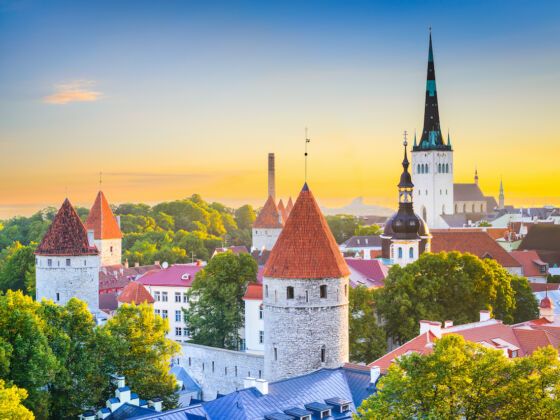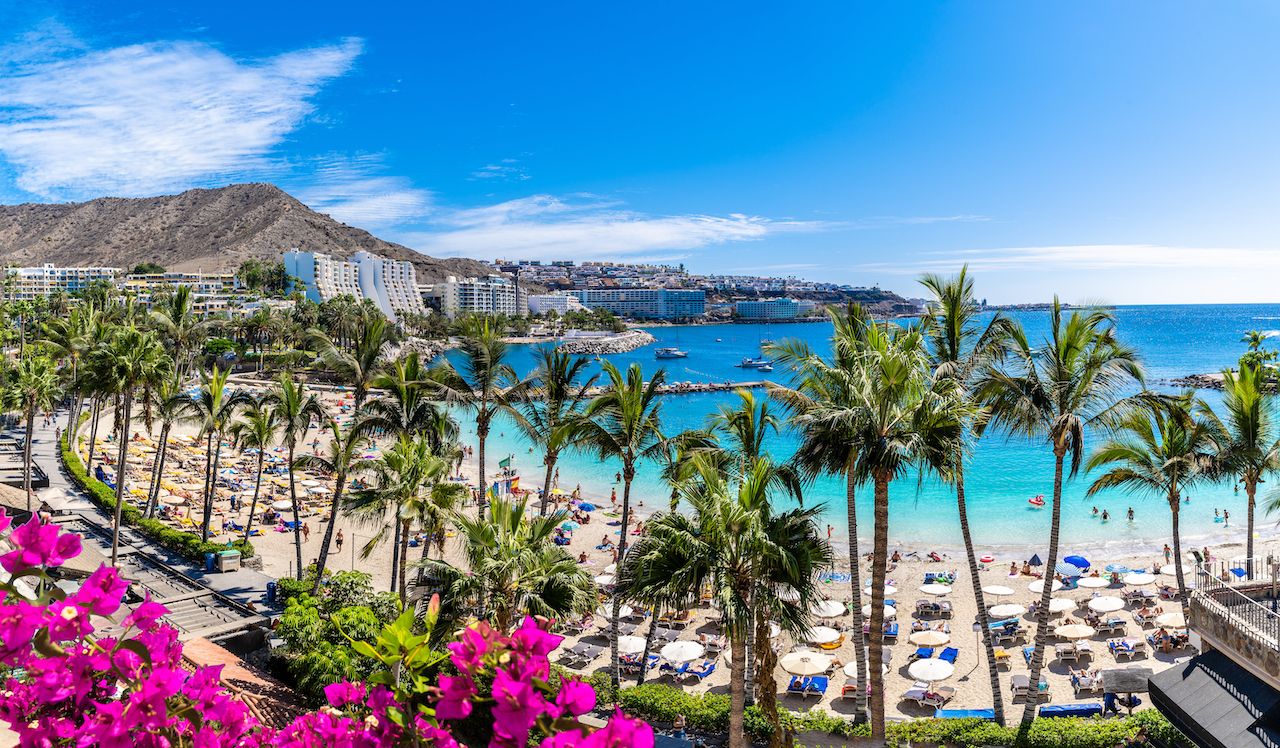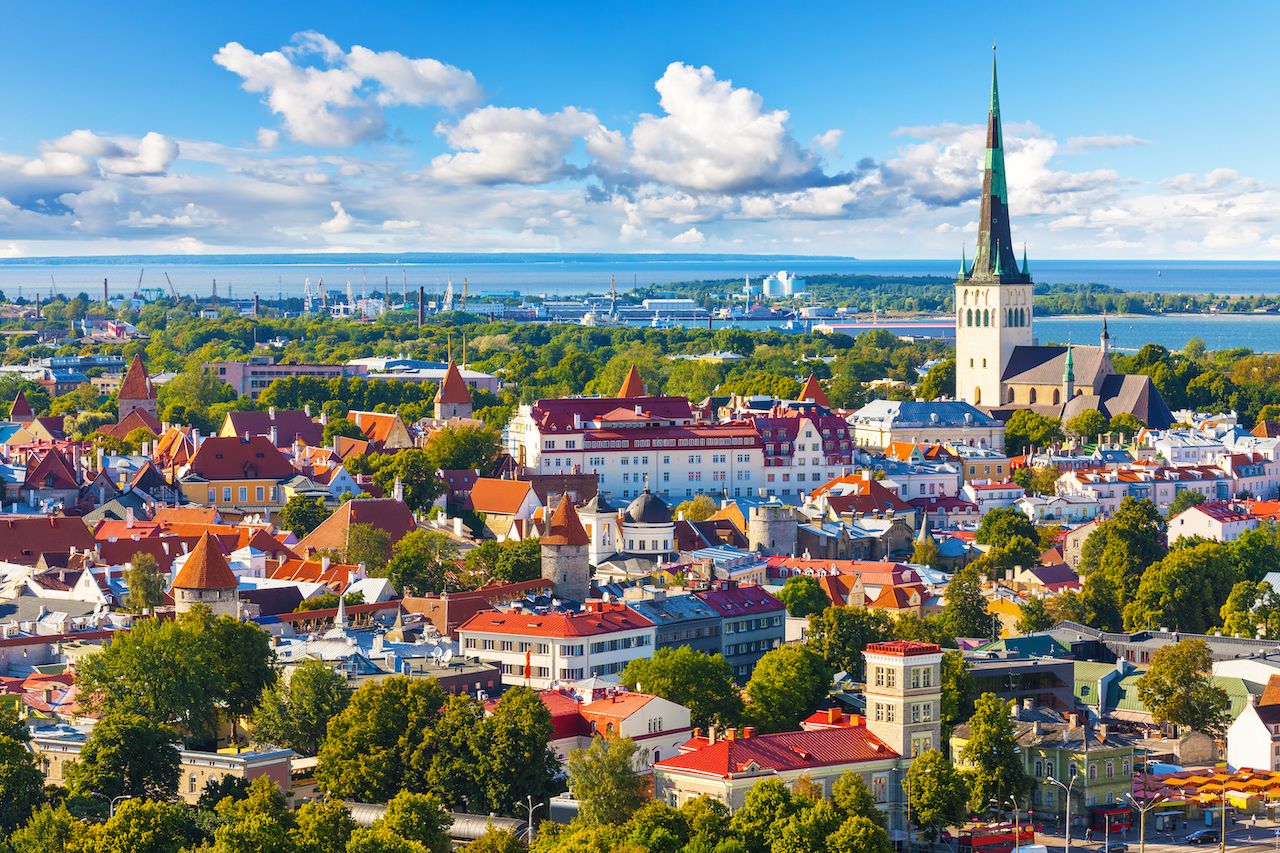Europe is embracing the digital nomad movement. Parts of it, at least, and in segmented phases. Several countries have developed specific digital nomad visas — for the first time even embracing the term “digital nomad” in some cases — that permit verified remote workers to perform their work in the country without having to follow the restrictions or time limits of tourist entry, which generally prohibit performing profitable work while in the country. Each is unique and addresses common issues facing traveling remote workers in different ways, such as tax requirements, length of permitted stay, and whether or not you need to be working remotely for a business based in that country.

These Nomad-Friendly Visas Let You Stay in the European Union Longer Than 90 Days
Spain

Photo: Balate Dorin/Shutterstock
Spain offers an established visa that digital nomads can use to remain in the country for longer than 90 days, the Self Employment Visa, with a few notable caveats.
First, you have to be self-employed. While this can include freelancing or contracting with a foreign company on an ongoing basis, it does not include remote workers who are W-2 employees of a US-based company, for example. You’ll have to provide information on your work or business and note if jobs will be created in Spain because of your efforts, where you will base your business in the country (consider a coworking space), and other info on your work as requested.
Second, all documentation must be completed and submitted in Spanish, and translating must be done by a Sworn Translator (of which the Spanish government provides a list). You also must prove that you have at least 661.5 euros ($804) in your bank account, and more for longer stays.
Finally, you must apply at least 90 days in advance of your arrival to Spain, schedule an interview at a consulate, and bring the required paperwork with photocopies. Download and print the visa application form to submit to the consulate, and again, be sure to fill out the form in Spanish.
Worth noting is that the Spanish island of Gran Canaria actively welcomes digital nomads to come, so much so that it has wholeheartedly embraced a digital nomad conference held on the island and its name, Nomad City.
Estonia

Photo: Oleksiy Mark/Shutterstock
Estonia doesn’t beat around the bush when it comes to embracing modern technology. It became the first country to allow its citizens to vote online, for example, and also pioneered the concept of the e-residency, which allows foreigners to open bank accounts and base their remote business in the country without ever having to even set foot in Tallinn for a physical meeting. It then went further last year, with the aptly named Digital Nomad Visa.
Its requirements are straightforward: You must work remotely. You must maintain and perform most of your work for non-Estonian businesses. You must make at least 3504 euros ($4,262) per month and have been doing so for at least six months. If you can answer “yes” to each of those three questions, apply online and start packing your bags — a year in Estonia is on the horizon.
Croatia

Photo: Dreamer4787/Shutterstock
The Croatian digital nomad visa is new, announced by the government in August, 2020, and in effect as of January 1, 2021. The visa includes tax exemptions, meaning you don’t necessarily have to pay taxes to the Croatian government if your income is already taxed elsewhere. It does require that you maintain health insurance, a rental contract for your residence in Croatia, and provide proof of your remote employment.
Working for a Croatian company is prohibited, as the law states that a permitted digital nomad will perform “work through communication technology for a company or his own company that is not registered in the Republic of Croatia and does not perform work or provide services to employers in the Republic of Croatia.” So, have your remote work situation together before applying for the permit.
Meet these requirements and pass the background check, and you could find yourself spending up to one year residing along the shores of the Adriatic Sea. Should you wish to stay longer, you may be required to leave the country for six months before re-applying for the visa permit. Visit the Croatian government’s relevant permit page to get the process going.
Svalbard, Norway

Photo: Jane Rix/Shutterstock
Norway’s digital nomad visa is unique. For one, Norway isn’t a member of the EU but is part of the Schengen Zone that encompasses most EU states, meaning travelers to Europe can generally remain in Norway for up to 90 days. This remote work visa allows remote workers to base themselves only in Svalbard, the archipelago north of mainland Norway that is home to the northernmost city in the world, Longyearbyen.
The coolest thing about this visa, other than the fact that you’re based on the expensive but beautiful island, is that it is valid for the rest of your life. So, if you were inclined to, you could pack up your stuff and permanently live in the Arctic — so long as you’re working remotely and follow the specified requirements. If you contract with a Norwegian business, you may also qualify for the Independent Contractor visa, which allows you to base out of mainland Norway while you perform your duties.